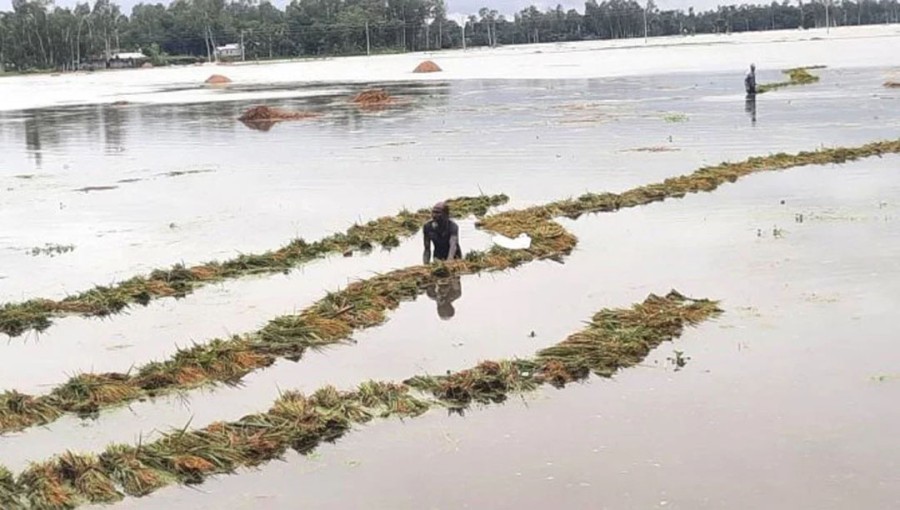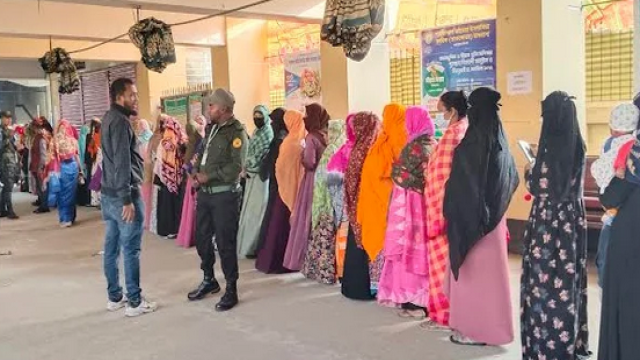Kurigram's agricultural sector has faced significant damage, amounting to Tk105 crore, due to severe droughts, excessive rainfall, and flooding this year, leading to the destruction of thousands of hectares of jute, aman seedbeds, vegetables, and aush paddy, as reported by local authorities.
Jute farming in the district's low-lying areas has been particularly affected. The losses incurred by jute alone account for more than half of the total damages.
Kurigram, which is crisscrossed by five inter-border rivers—the Brahmaputra, Dharla, Teesta, Dudhkumar, and Jinjiram—and sixteen other rivers, is frequently impacted by natural disasters such as floods.
This year, the northern district experienced drought conditions in April and May, followed by heavy rainfall in June, during which 1,100mm of rain was recorded, according to the Rajarhat Agricultural Weather Office.
Flooding began in early July, and even after two weeks, water levels have not fully receded from the district's low-lying areas.
The Department of Agricultural Extension (DAE) in Kurigram had set a target of cultivating 17,950 hectares of jute, but due to the drought, only 17,256 hectares were planted.
Of that area, 2,884 hectares of jute were completely destroyed by the heavy rains and subsequent flooding.
During a visit to the Jatrapur and Paikgachhi unions within the Sadar upazila, this correspondent observed that many jute plants had withered after being submerged in floodwaters.
Farmers are now drying the dead plants for use as jute sticks, while some are attempting to harvest the remaining jute, though the quality and yield have been significantly compromised. As a result, jute farmers are facing difficulties not only in earning a profit but also in recovering their cultivation costs.
Rahimuddin, a farmer from the Ghono Shyampur area of Jatrapur Union, said, "I had cultivated jute on two bighas of land, and it was almost time for harvest. The flood submerged everything, and now all the plants are dead. I have no option but to cut and dry them with sticks."
DAE Official Md Mamunur Rahman told UNB that 21,346 jute farmers were impacted by the floods. Approximately 10,240 tons of jute were destroyed, resulting in a loss of Tk56 crore.
He also mentioned that efforts are underway to encourage farmers to transition to Aman paddy cultivation as soon as the floodwaters recede.
Additionally, the department is advising farmers in flood-affected areas to prepare for early Rabi crops if the water levels take longer to recede.































Comment: